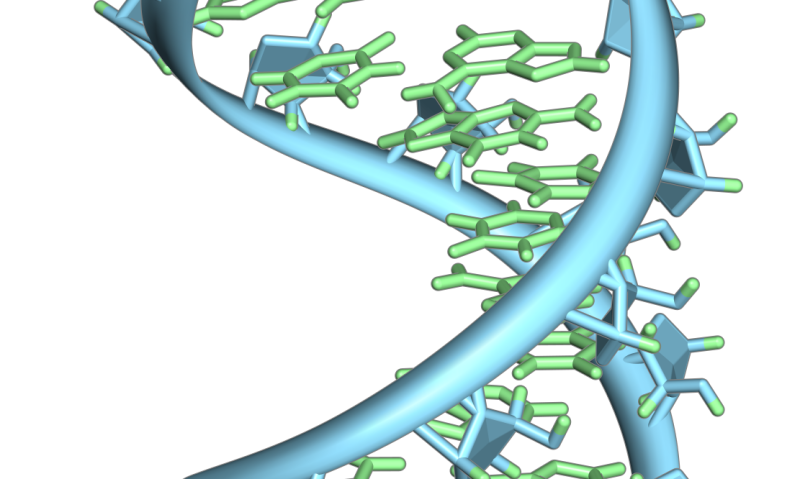This article has been reviewed according to Science X's editorial process and policies. Editors have highlighted the following attributes while ensuring the content's credibility:
fact-checked
peer-reviewed publication
trusted source
proofread
Newly discovered RNA molecules hold promise for detecting and treating esophageal cancer

Irregularities in the body's genetic coding to make proteins are linked to cancerous tumors. But most genetic material contains elements whose function isn't clear.
Could abnormalities in non-coding material also impact a person's health, or even be linked to cancers as well?
A new study by researchers at the Case Western Reserve University School of Medicine suggests that the non-coding genetic molecules also play a key role in health and disease, including tumor development.
More specifically, they've discovered that these molecules may hold promise for warning of malignancies such as esophageal cancer, where a lack of biomarkers makes it hard to detect and treat tumors early.
"What we wanted to find out," said Kishore Guda, an associate professor at the School of Medicine and lead researcher of the study recently published in the peer-reviewed journal Gastroenterology, "was can we use these as potential biomarkers for developing cancers?"
Ribonucleic acid (RNA) codes for proteins and carries genetic information in all living cells. In cancers, these RNA molecules are not only "turned on," but also appear to be activated in cells that are likely to progress to cancer.
With that knowledge, it may be possible to detect cancers at an early stage—or even before they become cancer—making it possible to improve patient outcomes and even survival.
In their study, the researchers performed the first discovery and characterization of a specialized sub-class of what is known as "long intergenic" non-coding RNA molecules in esophageal malignancy.
What they found: A panel of these molecules was also "turned on" in cancer tissues and in pre-malignant tissues (for example, those at a high risk for becoming cancer). And these RNA molecules can be detected in patient biopsy tissues using routine imaging.
Those RNA molecules also seem to inhibit the growth of esophageal cancer cells by regulating other genes potentially involved in cancer development, thus providing new opportunities for therapeutic targeting of these cancers, the authors concluded.
"Our study opens a new area of investigation by implicating these RNA molecules as additional players in esophageal cancer," Guda said. "Our goal is to understand how and when these molecules are turned-on during esophageal cancer development, and how they control other genes involved in cancer processes."
With this new knowledge, the team hopes to test whether the RNA molecules can be integrated into CWRU's EsoCheck molecular diagnostic panel—licensed to Lucid Diagnostics—for detecting cells at a high risk of becoming cancerous.
They also want to test whether blocking the RNA molecules, or blocking the genes controlled by these molecules, might lead to a new treatment strategy for a cancer that is often lethal.
More information: Durgadevi Ravillah et al, Discovery and Initial Characterization of Long Intergenic Non-coding RNAs Associated with Esophageal Adenocarcinoma, Gastroenterology (2023). DOI: 10.1053/j.gastro.2023.04.037



















